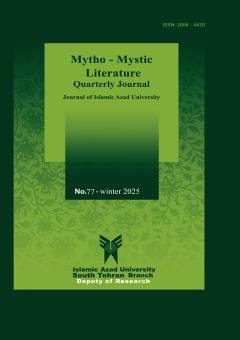The Evolution and Function of Myth and Epic in Historical Works of the Mongol-Ilkhanate Era: A Study Based on Tārīkh-i Jahāngushāy-i Juwaynī, Jāmi al-Tawārikh, Tārīkh-i Wassaf
Subject Areas : Mythological Characters
1 - Ph.D. in Persian language and literature, University of Qom
Keywords: Myth, Epic, Tārīkh-i Jahāngushāy-i Juwaynī, Jāmi al-Tawārikh, Tārīkh-i Wassaf,
Abstract :
The political and social landscape of the Mongol-Ilkhanate era is intricately intertwined with the prevalent presence of Iranian myths and epics in contemporary historical accounts. The diverse objectives of historians have led to a shift in the role of myth and epic narratives during this period, prompting a need to explore how their usage evolved and understand their potential impact. This study, conducted through a combination of library research and descriptive-analytical methods, has yielded the following findings: 1) Ata-Malik Juwayni drew inspiration from the Shāhnāmeh to craft a prose epic that employed epic characters and settings to express his anti-Mongol and pro-Iranian sentiments. Through skillful parallels between the rulers of the Khwārezm-Shāh dynasty and the Iranians, juxtaposed with the Mongols portrayed as Turanians, Juwayni reinterpreted history through an epic lens, vividly depicting the epic battles of the Iranians. 2) Rashid al-Din Fazlullāh Hamadānī played a pivotal role in acquainting outsiders with the concept of Iranshahri, aiming to establish a foundation for reviving the political ideals of ancient Iran, including the notions of Shah and Iranshahr. 3) By illustrating the governing styles of both mythological and historical Iranian monarchs, Wassaf endeavored to disseminate Iranian culture among the Mongols and Ilkhanates, fostering a more benevolent ruling approach akin to that of Iranian kings. Additionally, Wassaf utilized myth and epic elements to showcase his literary prowess.


